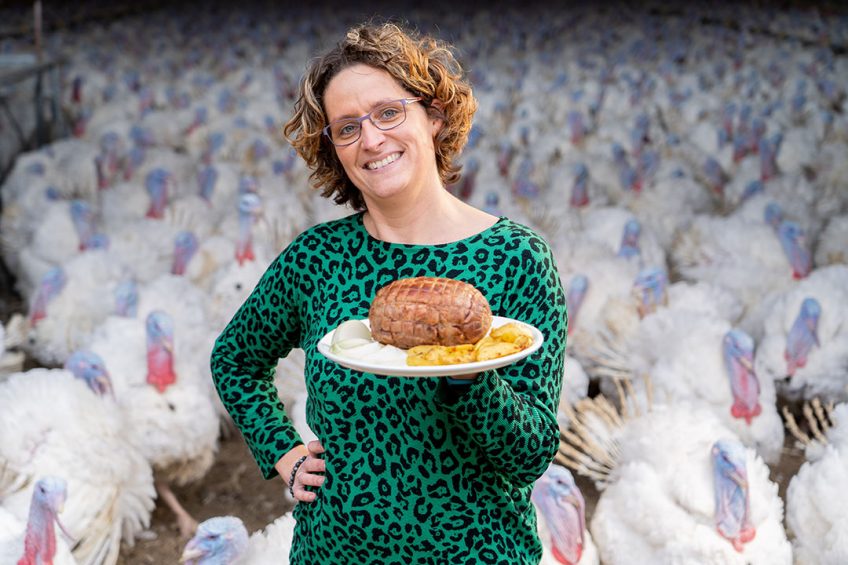Native breed turkeys more tender, have stronger leg bones

Research has shown that native breed turkeys have stronger leg bones and more tender breast meat than their commercial counterparts.
The research project, a collaboration between the UK’s Rare Breeds Survival Trust and the Poultry Research Unit at Nottingham Trent University, found breast meat from the Norfolk Black native breed to be particularly tender.
There are currently 11 native breeds of turkey on the RBST watchlist for rare poultry, including the Norfolk Black, British White and Slate breeds, and the Trust is keen for farmers to consider the commercial advantages associated with the findings of the new research.
RBST Chief Executive Christopher Price said: “These findings highlight 2 important commercial advantages for farmers who choose native breed turkeys. Firstly, stronger leg bones can reduce the losses from lameness that are an ongoing concern for many commercial turkey businesses.
“Secondly, the improved tenderness of the native breed turkey meat is appealing for consumers, particularly as the trend grows for eating less meat but choosing high quality products that are sourced locally and which are reared in high welfare systems.”
Results
8 native breed turkeys (Norfolk Black and Slate) were compared to a test set of 20 commercial birds, with measurements taken at 12 and 18 weeks for the commercial strains in order to benchmark meat quality in the native breeds. Tenderness was measured as the force exerted on the sample in order to elicit a representative change in tension. Bone strength was assessed by measuring tibia and femur strength per kilogram of bird weight.
 US poultry meat consumption rises: chicken protein of choice
US poultry meat consumption rises: chicken protein of choice
US consumers have been turning to chicken during the Covid-19 pandemic, viewing it as the number 1 protein during quarantine.
Professor Emily Burton, head of Nottingham Trent University’s poultry unit, said: “While native breeds of livestock such as these turkeys are rare, this is not because they are not good food sources, it is because not many are kept and they take a long time to grow when compared to their commercial friends.
“We need commercial turkey meat for the market, and this suggests that whilst these strains are excellent as being batch produced and offered to consumers, native breed turkeys can also be a tasty alternative, and are good, strong birds.”












